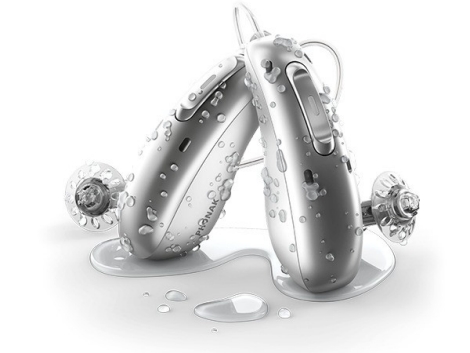
In the field of hearing, the idea of client-centred care, in its basic form, is implicit as there is a subjective perspective along with the technical. Yet, many hearing clinics still adhere to a biological or sales model when dispensing hearing aids. In this article, I’ll discuss what client-centred care could look like in audiology and how to ensure your needs are met by your chosen hearing health team.
Client-Centred Care Defined
So, what is client-centred care? This concept includes client-centred care, patient-centred care, or patient activation. They all refer to the same framework of clinical practice. Generally, client-centred care changes the focus from a professional-centred authority to the individual client. Additionally, it considers that “the whole person is understood,” acknowledging the “full range” of human experience; biological, emotional, psychological, and social in treating hearing loss. Hearing is more than just how the ears respond to sound, it significantly affects the individual and those around them.
Shift to Care Approach
Traditionally, medical fields have centred around biomedical or disease-oriented models. Simply, a problem is identified, and only the problem/symptoms are fixed. Also known as “doctor-knows-best.” In this, the client is a passive recipient. The client-centred framework is a shift away from this style of care.
In contrast, client-centred care is more holistic in nature. The goal is to understand the client’s personal experiences and empower them to be active, engaged participants in their health care. This shift is especially evident in treating chronic conditions like hearing loss. Thus individualized treatment is developed with the health professional and the client equally.
Factors in Client-Centred Care
In various research studies, several major factors to client-centred care were identified.
The Client
It is necessary to consider the whole person in clinical practice, not just their hearing test results. The client’s emotional, psychological, and social values and needs should also be discussed. Healthcare providers must respond respectfully to patients’ preferences and needs, guided by professional opinions.
The Clinician-Client Relationship
It’s more important than we first thought. Having a practitioner you trust, can find common ground with, who communicates effectively, and who genuinely empathizes/acknowledges your struggles makes a difference. These factors actually increase the success of hearing aids and satisfaction with the overall experience. All involved are human beings with feelings, thoughts, past experiences, and expectations and thus should be treated as such.
Shared Decision-Making
As previously discussed, client-centred care shifts power equally between the clinician and client, so both are active participants in the process. Shared decision-making is a large part of this balanced power dynamic. A healthy therapeutic relationship empowers clients to manage their health through shared-decision making or problem-solving. As clinicians, we are responsible for educating the client on their hearing health and providing the available options so they can select the technology they feel is best for them.
Implementation of a Client-Centred Approach
Ideally, client-centred care would change how healthcare appointments are conducted. These could be changes to build the clinician-client relationship (i.e. more time to discuss case history and results) or alterations to the organization (i.e. appointment length, available treatment options, etc.). Involving family is also another way client-centred care improves success. Your family not only provides valuable information about you, but they are also often the most frequent communication partners. They can also help you make big decisions, like investing in hearing aids. Using flexibility within appointments and those in attendance to better cater to clients’ needs is just the tip of the iceberg with client-centred care. This approach doesn’t have to be complicated, yet even small changes can benefit the client experience.
Here at The Ear Depot, you are the hero of your own story. We want to take the time to actively listen to your needs and genuinely respond. Pairing your expertise with our professional opinion ensures both parties have an equal say. We hope this is demonstrated through your initial meeting with us, our tailored recommendations, and how we include you in the decision-making process. You understand the effects of your hearing better than we do, and we want to support you in the journey to hear clearer.



Recent Comments